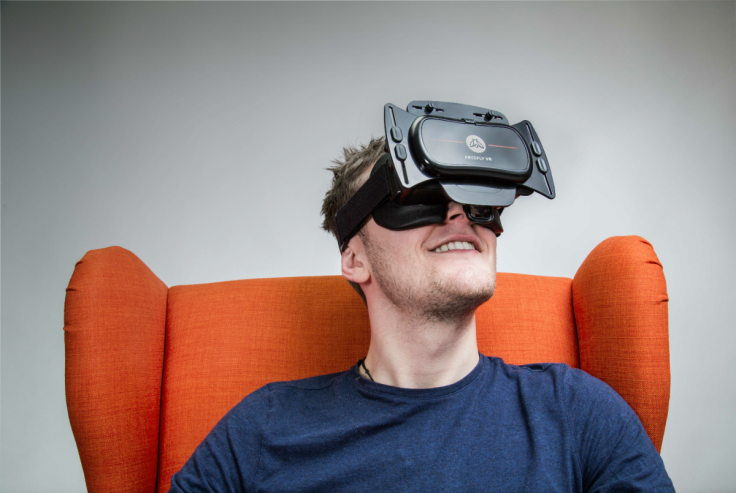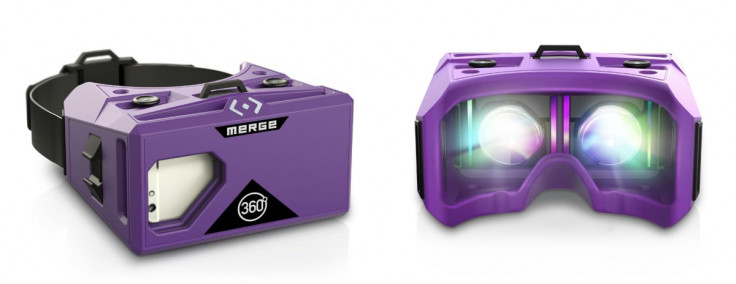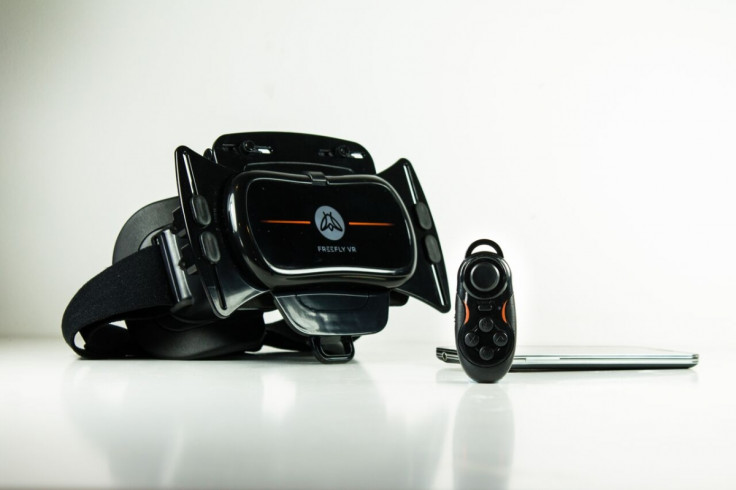Budget virtual reality headsets set to be hot Christmas gifts in 2015

If you've been excited about the possibility of virtual reality finally becoming available for games and entertainment but don't want to spend a fortune or wait for big companies like Oculus Rift, Samsung and HTC to release their headsets, then you'll probably be excited to learn that not one, but two new budget virtual reality headsets will be making their way to UK high streets this Christmas.
First off, the Merge VR Googles is retailing at Game stores around the country and online for £49.99 ($76.97) from 30 October. The Merge VR is a purple foam headset that works with most Android and iOS smartphones and can be adjusted to make space for different-sized devices, as well as different-sized heads.
Also, the Merge VR comes with lenses that can be adjusted to accommodate the distance between your eyes, which varies from person to person, and if you want to interact with a virtual reality app, game or experience, you press two buttons located at the top of the headset.

Then, there's the Freefly VR headset, which will be available for £50 from John Lewis and will launch in early December in the UK. This black VR headset is made from black plastic and was born out of Kickstarter. Like the Merge VR, it also accepts a wide range of Android and iOS smartphones, and it comes with a Bluetooth joystick with buttons similar to a video console controller so that you can point at objects or use it to command a virtual weapon or tool.
But how do these budget headsets compare with other solutions like the Google Cardboard, which costs only $19.95 online, or the soon-to-be released Samsung Gear VR or the HTC Vive, which are expected to retail for roughly £120 when they go on sale next year?

"As a price point, we see both the Merge VR and the Freefly as being hugely influential on consumers and casual VR users who are similar to casual gamers, and we see it being picked up for Christmas presents," Solomon Rogers, CEO of UK-based VR, digital and physical production agency Rewind, who has tested out all the upcoming headsets told IBTimes UK.
"The Google Cardboard might be cheaper, but it's a giveaway, throwaway product. It doesn't give you a premium experience. There are no straps so you have to hold it to your face, and it doesn't fit on your face, plus it's done after about 20 uses."
Not only that, but the Samsung Gear VR and the HTC Vive can only be used with Samsung and HTC smartphones, and you have to have one of the latest models that debuted in 2015, as opposed to being able to use just any device.
"Because [the budget VR headsets] don't use any other type of electronics besides your smartphone and it's platform agnostic, the industry is really excited because it makes it much easier for developers to develop products for it, and it enhances the user experience," said Rogers.
"Merge VR has done well to get a deal with Game to get to the gamers, but Freefly's deal with John Lewis, although more risky, could be even more successful, as it's opening it up to regular consumers on the high street, and the more people who buy these headsets, the more people are going to want content for them."
© Copyright IBTimes 2025. All rights reserved.






















